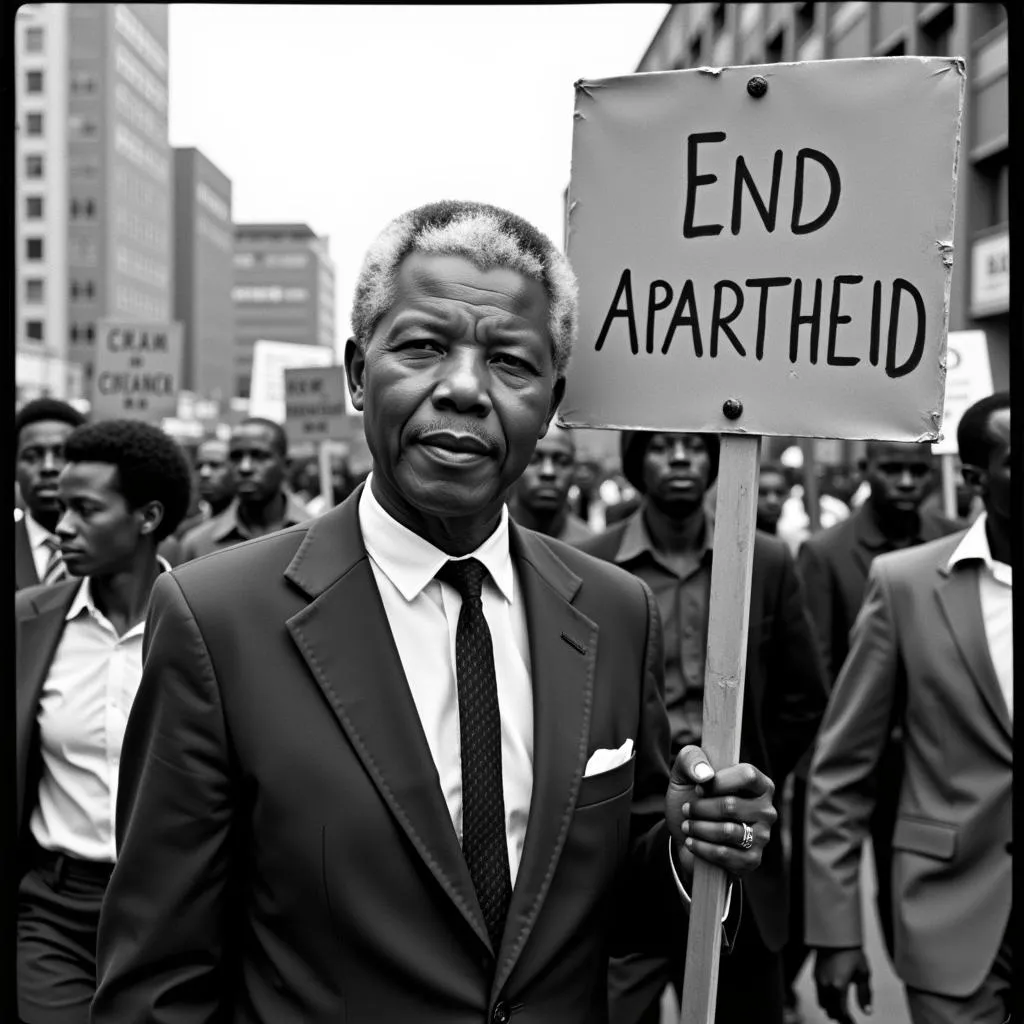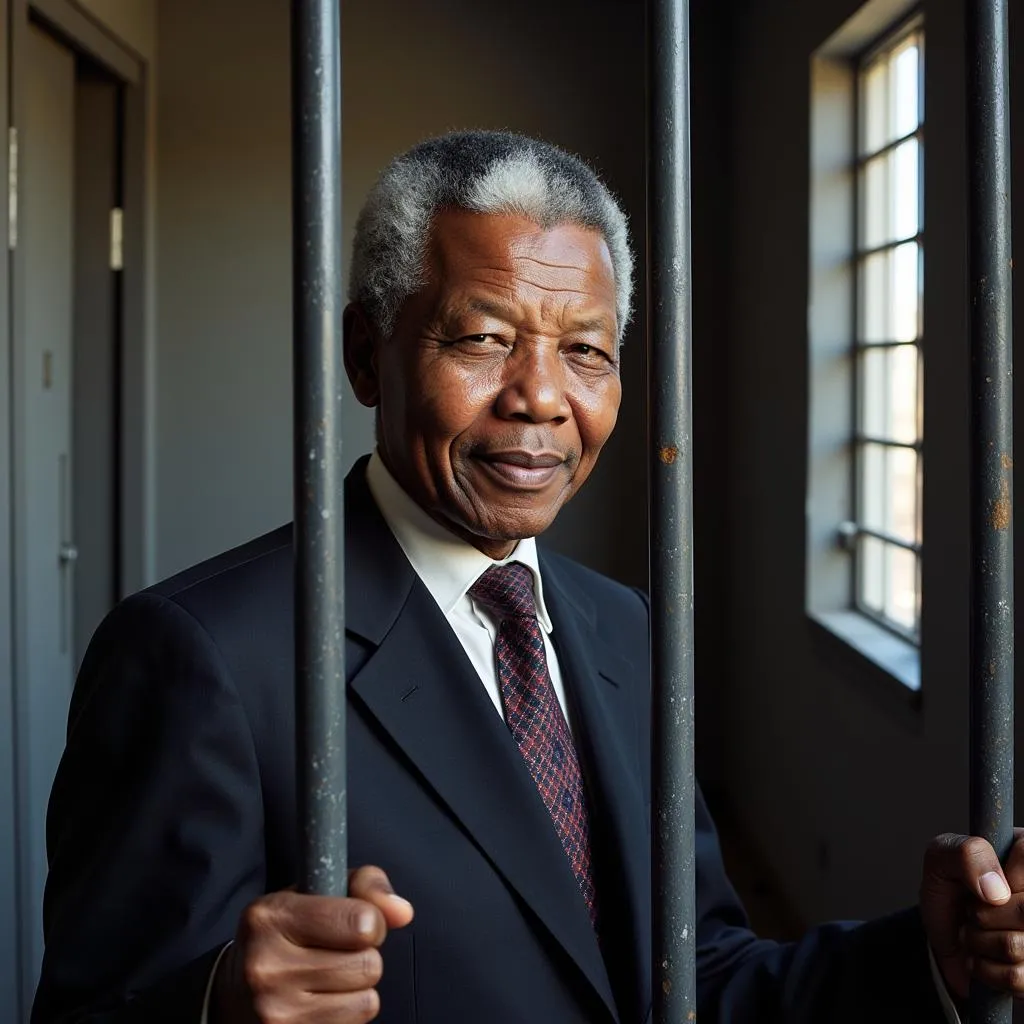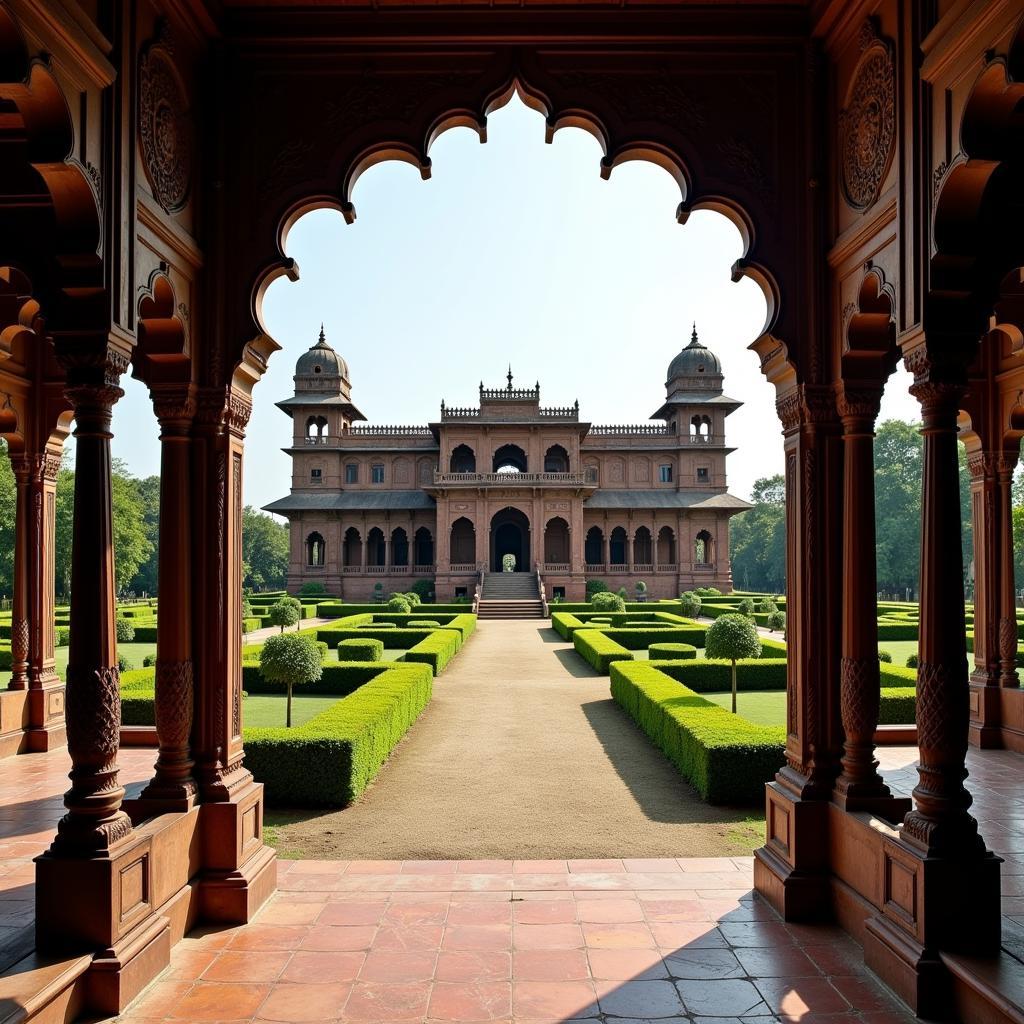South African Leader Nelson Mandela: A Legacy of Freedom and Forgiveness
Nelson Mandela, a name synonymous with the fight against apartheid in South Africa, remains an enduring symbol of resilience, courage, and forgiveness. His journey, from political prisoner to the nation’s first black president, is a testament to the power of unwavering conviction and the pursuit of justice.
From Activist to Prisoner: The Early Life of Nelson Mandela
Born in 1918 in a small village in the Eastern Cape, Mandela’s early life was shaped by the realities of racial segregation and discrimination that permeated South Africa. Witnessing the injustices inflicted upon black South Africans fueled his passion for equality and ignited his spirit of resistance.
Mandela joined the African National Congress (ANC) in 1944, dedicating himself to dismantling the apartheid regime through peaceful protest and civil disobedience. His activism, however, came at a heavy price. He faced constant harassment from the authorities, enduring numerous arrests and bans on his political activities.
 Nelson Mandela as a young activist
Nelson Mandela as a young activist
The Rivonia Trial and 27 Years of Imprisonment
The turning point in Mandela’s life, and the struggle against apartheid, came in 1964 with the Rivonia Trial. Accused of sabotage and plotting to overthrow the government, Mandela and several other ANC leaders were sentenced to life imprisonment.
Confined to the notorious Robben Island prison, Mandela endured harsh conditions and backbreaking labor. Yet, his spirit remained unbroken. He became a symbol of hope and resistance, not just for South Africans, but for people around the world fighting for freedom and equality.
 Nelson Mandela during his imprisonment on Robben Island
Nelson Mandela during his imprisonment on Robben Island
A Nation Transformed: The Release and Presidency of Nelson Mandela
After 27 years of imprisonment, mounting international pressure and the growing realization within South Africa that apartheid was unsustainable, led to Mandela’s release in 1990. This momentous occasion marked the beginning of a new era for South Africa.
Mandela’s leadership was instrumental in guiding the country through a peaceful transition to democracy. His commitment to reconciliation and forgiveness, rather than retribution, played a pivotal role in preventing a bloodbath and fostering unity in a deeply divided nation.
In 1994, Nelson Mandela made history by becoming the first black president of South Africa. His presidency was marked by a commitment to social justice, economic development, and healing the wounds of the past.
A Lasting Legacy: The Global Icon of Peace and Reconciliation
Nelson Mandela’s legacy extends far beyond the borders of South Africa. He is revered globally as an icon of peace, forgiveness, and reconciliation. His life and work continue to inspire generations to fight for justice, equality, and human rights.
Mandela’s unwavering belief in the power of dialogue and his ability to forgive his oppressors serve as enduring lessons for a world grappling with conflict and division. His message of hope and reconciliation resonates deeply, reminding us that even in the face of adversity, it is possible to overcome hatred and build a more just and equitable world.
Do you want to learn more about other African heroes who fought for freedom and equality? Explore our dedicated section on African heroes.
FAQs about Nelson Mandela
What were Nelson Mandela’s key achievements?
Nelson Mandela’s most significant achievement was leading the fight against apartheid in South Africa. He played a crucial role in dismantling the system of racial segregation and guiding the country towards a democratic future. He is also celebrated for his commitment to reconciliation and forgiveness, fostering unity in a deeply divided nation.
How long was Nelson Mandela imprisoned?
Nelson Mandela was imprisoned for 27 years, from 1964 to 1990.
What is Nelson Mandela’s legacy?
Nelson Mandela’s legacy is one of resilience, courage, and forgiveness. He is a global icon of peace and reconciliation, inspiring generations to fight for justice, equality, and human rights.
What can we learn from Nelson Mandela’s life?
Nelson Mandela’s life teaches us the importance of unwavering conviction, perseverance in the face of adversity, and the power of forgiveness. He demonstrated that even in the darkest of times, hope and the pursuit of justice can prevail.
How did Nelson Mandela’s leadership impact South Africa?
Nelson Mandela’s leadership was instrumental in guiding South Africa through a peaceful transition to democracy. His commitment to reconciliation and forgiveness helped prevent a bloodbath and foster unity in a deeply divided nation.
For further insights into the intricate history of South Africa’s struggle for freedom, you can delve deeper into the role of the African National Congress by reading about who was the leader of the African National Congress.
Need Help?
Do you need assistance with information about Africa? Contact us via:
Phone Number: +255768904061
Email: [email protected]
Address: Mbarali DC Mawindi, Kangaga, Tanzania.
We have a dedicated customer service team available 24/7.


